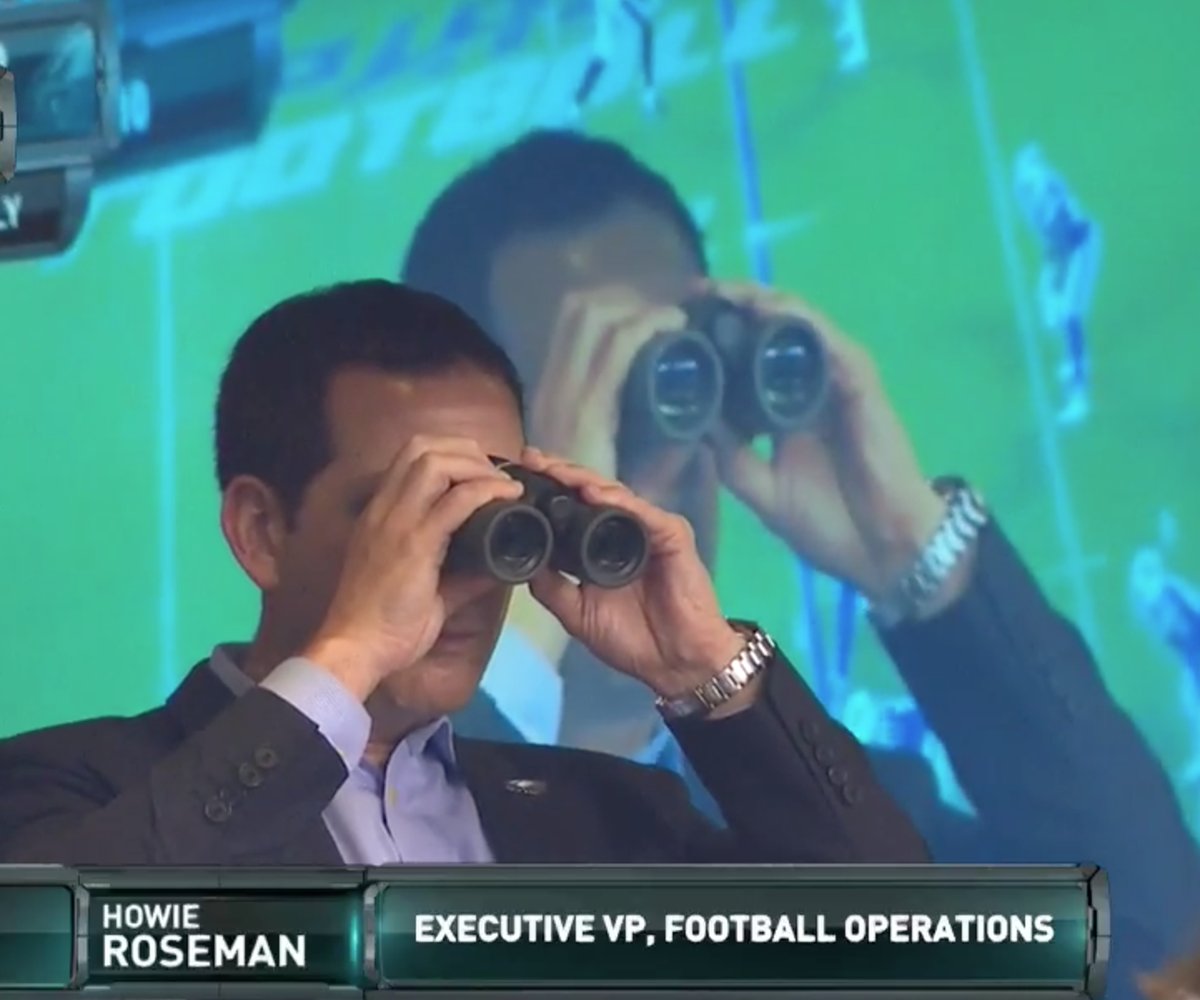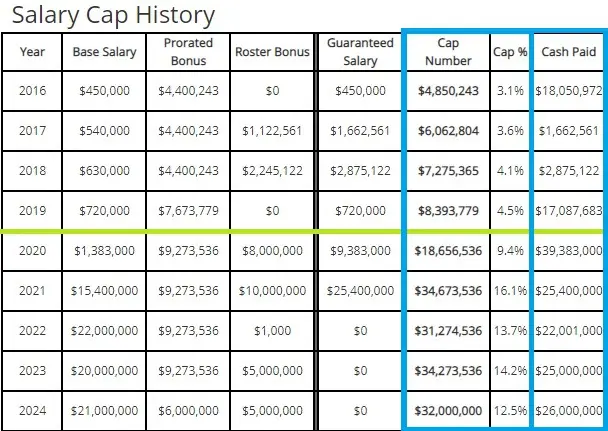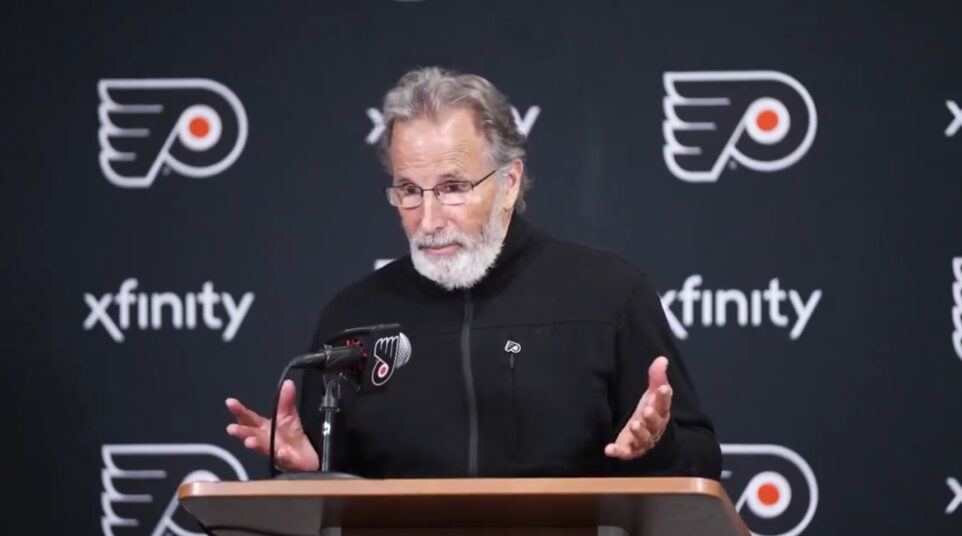
On Howie Roseman, the Salary Cap, and the Value of the Backup Quarterback
If the Eagles didn’t take Jalen Hurts in the second round, would he have been there in the third?
Probably not. That seemed to be the general consensus, post-draft, an idea that was bolstered when Adam Schefter said this on 97.5 the Fanatic Tuesday:
Not surprised at all. I had a sense they were going to take him. There were teams around him, teams right around there, that if he wasn’t going (to the Eagles), he was going right after. Or right before. There were, in my mind, three potential landing spots right in that vicinity, right in that spot. The Eagles got him before anyone else could. Not only (that), there were other teams that I think would have liked to trade up to get to that spot to go get him.
The Bills could have picked Hurts at 54. The Patriots perhaps at 60. Washington was on the board at 66. The next QB didn’t come off the board until the fourth round, when the Colts picked up Jacob Eason at #122 overall.
To move the discussion forward, I think it’s worth looking at the cap situation the Eagles currently face. Howie Roseman mentioned earlier this week that the team spent $32 million on the backup QB position over the last four years, which included two years of Nick Foles, one year of Josh McCown, the money paid to Chase Daniel, and whatever Nate Sudfeld and other third stringers earned.
Certainly that strategy was justifiable, considering the fact that Carson Wentz was still on his rookie deal and hitting the cap under $9 million for his first four NFL seasons. Last year, his salary accounted for 4.5% of the total cap, a number that jumps to a projected 9.4% this year and 16.1% next season, via these numbers from Over the Cap:
Adding Jalen Hurts on a rookie deal gives you a nice, cost-controlled contract at the backup QB spot, absolutely. It’s a solid financial move and gives you stability for a few seasons.
It also brings a fan and media controversy, leaves a talented player on the bench (or doing gimmicky Taysom Hill shit), and has locker room ramifications that Pro Football Focus can’t turn into a nicely packaged piece of data.
For people like myself who vouch for the “veteran backup” route, this is the quote I keep coming back to, which is from Howie earlier this week:
“To be fair, our history of taking quarterbacks later in the draft, there’s not a great success rate on that. You’re not really solving a problem. We knew there were a couple of positions and a couple of guys that we were discussing on the board (at #53 overall), we had some guys we really liked and we were fortunate to get them later in the draft, not so much later that we could think about the combinations. The other thing we looked at was that over the last four years, we’ve spent $32 million on backup quarterbacks. About $8 million a year, and our cap guys are doing a great job adjusting for inflation, but that’s like $9 million a year. It’s money we can spend on other positions.”
In the very next quote from that WIP interview, Roseman said this:
“We just feel like this is the most important position in sports.”
In my mind, if you feel like QB is that important, then you can justify spending $4-6 million on a backup even if Wentz is already hitting the cap at $18.5 million this year. Use the #53 pick on a cost-controlled player at another position, devote that ~15% of the cap to two quarterbacks, and arrange the remaining slices of the pie in a different fashion.
It’s a bit disconcerting to look around and see Jameis Winston, Cam Newton, and Andy Dalton on the veteran QB market, then Winston signs for pennies in New Orleans while Howie Roseman is talking about spending the money on other positions, (yet simultaneously talking up the importance of the backup QB spot). One of the key reasons why they finally won a Super Bowl is because they paid Nick Foles a decent amount of cash to be a backup, so wouldn’t you try to emulate that moving forward? This would appear to be a combination philosophical shift and no-confidence vote in Carson Wentz, as they probably consider the 2017 Super Bowl run the exception to the norm.
The veteran backup route served them well a few years ago, and if they value the QB position that much, I don’t see the issue in dedicating a chunky portion of that cap to match that belief. You explore the margins for savings at other positions, which they did with the Jalen Reagor selection and everybody they drafted in rounds three through seven. This was a team that needed to get younger and faster, and perhaps it’s time to move on from players like Alshon Jeffery and DeSean Jackson when the Wentz cap hit jumps to 16.1% in 2021. Maybe Jason Kelce retires after this year or they move on from Zach Ertz and hand the tight end reins to Dallas Goedert. Those are some possibilities to consider.
Again, nothing wrong with Jalen Hurts, who was a fantastic college player, but a lot of NFL teams have highly-paid quarterbacks and still go the veteran backup route. The Falcons paid Matt Schaub a few million to backup Matt Ryan during their Super Bowl year. Tom Brady hit the cap around 10% in 2018 and New England went with Brian Hoyer for about $1 million. Derek Anderson earned similar money backing up Cam Newton in 2015, when the Panthers went to the Super Bowl.
The Eagles could have gone in basically two directions here for 2020:
- Wentz at $18.5 million, Jalen Hurts backs him up on cost-controlled rookie contract, Nate Sudfeld hits cap as QB3 at $2 million (spending about $21 million on three quarterbacks)
- Wentz at $18.5 million, veteran backup in the 4-6 million range, Nate Sudfeld hits cap as QB3 at $2 million (spending about $25 million on three quarterbacks)
Assuming they weren’t going to dish out $8 million to Cam Newton, that total number for 2020 really isn’t too steep. You could have theoretically gone with Carson Wentz, Matt Moore, and Nate Sudfeld as your QB room, then used pick #53 on a cost-controlled safety or linebacker. And then when Carson’s cap hit skyrockets in 2021, dump Moore and/or Sudfeld and find your rookie backup QB in next April’s draft, perhaps.
Two different philosophies here, and the Eagles are trying philosophy #1, as listed above. I don’t think the money should be that big of talking point though, especially if they value the QB position as much as they say they do.






